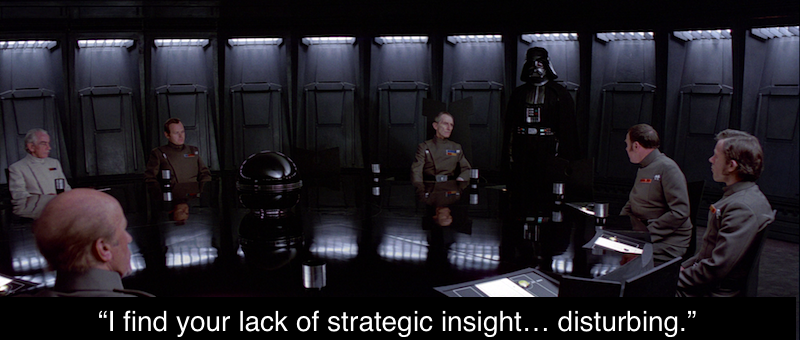Giving is a way of life in my family. I’ve talked before about how we make this a priority in our lives and our finances, and we try to make it a part of our everyday lives as well. For years, when anyone left the house for the day, they would leave with the words “Be a blessing!” in their ears. We want to be more than good people; we want to be a blessing to the world, and every part of my personal life is tuned toward that purpose.
Work? Not so much. Putting other people first at home is one thing, but doing it at work always seemed to be the fast track to a career in doormats and punching bags. When your boss has Sun Tzu’s The Art of War on his desk, maybe graceful capitulation isn’t the best strategy. So I learned to keep my generosity at home and to be more strategic in my dealings at work.
I had a certain image in my mind of what a “giver” looked like: nice, soft, beaten down, carrying some girl’s books to school while she walked arm-in-arm with the jock who would shove him in a locker later. In other words, a wimp.
I had fallen prey to the myth that “nice guys finish last.” If you wanted to succeed, you had to take: take every opportunity handed to you, take advantage of every weakness, take every bit of energy you had and put it toward your own success, because no one was going to give you anything. Did I like it? No. Was I comfortable behaving that way? No. But that was the way it was, so I could either toughen up or get used to doing everyone else’s work.
And yet I still wanted to make the world better, and not just during my few non-work hours. So I learned to camouflage my giving. I read The Art of War and hid my feelings under a gruff exterior. Better to be thought brusque than soft, right? I justified my mentoring and coaching because it made someone a better employee rather than a better person. I gave time and support and help, but I kept score because that’s how you make sure that no one’s taking advantage of you. I became a successful manager, but I wasn’t a whole person. I was living in hiding.
One day as I walked miserably to work, I decided I was done. I wasn’t going to keep trying to be one person at home and another at work. I decided that my mission, my ministry if you will, was to make work better for everyone. I couldn’t change everyone’s work environment, but I could certainly change mine. I could make work more fun, more generous, for myself and everyone around me. In short, I could start giving again. I would still be smart about it, because I wasn’t about to become a doormat and I was (I hoped) too smart to let someone trick me into doing their work for them, but I could be intelligently generous. My back was strong enough to carry a little more of the load for other people. I could help them with their problems too, whether or not they were on my to-do list. I could show others how to succeed with the confidence that it didn’t threaten my own prospects.
And you know what happened? I thrived. I wasn’t just happier, I was more successful. I took on bigger challenges, I built stronger teams, and I earned more money for my company. My true self turned out to be better at my job than my old, false self had ever been. My bosses noticed, and they promoted me. More challenges, bigger teams, more success. It turns out that giving works.
Until recently, I thought I was an aberration, the kind of statistical anomaly that makes people buy lottery tickets, because I didn’t see a lot of other successful givers around me. Then Micah Baldwin recommended a book by Adam Grant called Give and Take: Why Helping Others Drives Our Success. This book clarified everything that I had felt about work and life, but it showed one more thing: not only do givers succeed, they’re more successful than takers and matchers. The ripple effects of a generous lifestyle not only create a better world for the people around you, but for yourself as well.
If you want all of the details, then buy the book. I’d give you my copy, but Amazon hasn’t figured out how to let me loan a copy of a Kindle book yet (I could loan you my Kindle, but I’m not that much of a giver). In short, though, here are the concepts:
Everyone has a “reciprocity style,” the way they interact with others and score those interactions. Most people occupy the middle of the spectrum as “matchers,” expecting a quid pro quo interaction where the scales even out (I scratch your back, you scratch mine). A smaller percentage are “takers” or “givers.” Takers look to get the most out of every interaction, harvesting their relationships for their own benefit. Givers, on the other hand, offer help and resources without worrying about whether they’ll be paid back. As Grant puts it:
If you’re a taker, you help others strategically, when the benefits to you outweigh the personal cost. If you’re a giver, you might use a different cost-benefit analysis: you help whenever the benefits to others exceed the personal costs.
When Grant studied the reciprocity styles of some of the most successful industry leaders, he expected to find alpha-male takers dominating, just as they dominated every room they walked into. And while he found many, as well as some matchers, he found a surprising number of givers at the top as well. In fact, some of the most successful, most loved leaders were givers rather than charismatic takers.
Digging deeper, we can see why:
- Most people are matchers, so they have a strong sense of fairness. When they see an imbalance, they seek to redress it, so the natural balance ends up working against takers (who gain for themselves only) and for givers (who help others, creating a “karmic debt”).
- Takers are often aggressive networkers, but that’s because they’re busy burning their bridges behind them, draining relationships of value and moving on. Givers, even those who dislike “networking” (whew!) have deep, strong networks full of people who are eager to help them when given the chance. This creates a deep well of resources when they need help.
- Takers and matchers see most situations as a zero-sum game, where a bigger slice of the pie for me comes at your expense. Because givers tend to look at the world differently, specifically by empathizing and seeing things from another’s point of view, they frequently come up with creative solutions that enlarge the pie, meaning that there’s more for everyone. So when you cooperate with a giver, everyone wins!
- Because they’re always maneuvering for their own advantage, takers have very different relationships with people depending upon the power structure in the relationship. They are very charming and deferential, even submissive, with people who they perceive as higher up or able to help them, but unkind or even abusive with the people below them. This two-faced approach of “kissing up and kicking down” offends most people’s sense of fairness and, if they succeed and climb higher in an organization, creates an army of subordinates who are eager to see them fall. Givers, on the other hand, work to lift up the people around them regardless of their relative stature. This creates stronger organizations made up of people who want to see the giver succeed.
Backed by both anecdotes and strong research, Grant shows that smart givers can avoid becoming doormats and not only become successful, but do so by building stronger, healthier companies and relationships. In the middle of a year continually tainted by the actions of our President, the Taker-in-Chief, this gives me hope, not just for myself, but for our society. While the takers may thrive for a while, they do so while sowing the seeds of their own destruction. Meanwhile, the givers of the world, supported by the matchers, build the strong future that continuously replaces them. Back to Grant again:
This is what I find most magnetic about successful givers: they get to the top without cutting others down, finding ways of expanding the pie that benefit themselves and the people around them. Whereas success is zero-sum in a group of takers, in groups of givers, it may be true that the whole is greater than the sum of the parts. As Simon Sinek writes, “Givers advance the world. Takers advance themselves and hold the world back.”
So I’ll leave you with this thought: what kind of a company, or group, or world, would you rather belong to?
A zero-sum environment characterized by backstabbing, power plays, and constant maneuvering for position, where every meeting starts with a silent stack-ranking of the people in the room. A place where a bus must be driven through every hour, because someone’s getting thrown under it in every meeting. Where giving is a sign of weakness and keeping score is the only way to know if you’re better than the person next to you. Where the top-ranked person gets all the credit and his underlings get all the work and blame. Where the key character traits are self-interest, pride, and irascibility.
… or…
A place where people support each other, working through problems together. Where a leader’s job is to make his people successful, lifting them up and coaching them to become better at their jobs and happier in their lives. Where giving is a sign of strength and deep reserves, and those who help are given more and better responsibilities. Where your status is measured by the people you’ve helped to grow and move on rather than the ones you’ve forced to stay, and those who stay do so because they can’t think of a better place to work. Where no one has to announce their accomplishments because others have already done it for them. Where creative solutions not only help individuals, but help the company win in their market. Where the key character traits are generosity, humility, and self-control.
These are obviously extremes, and no one workplace, family, or country is purely one or the other. I can tell you, though, having worked in places that came close each of these extremes, I know where I’d rather be, and I know how to get there.
By giving.









